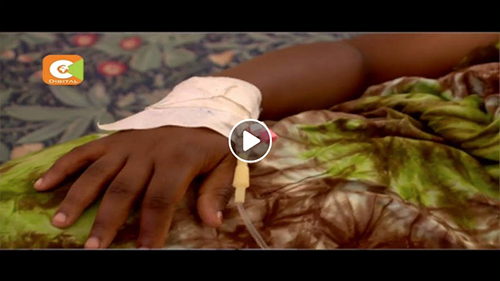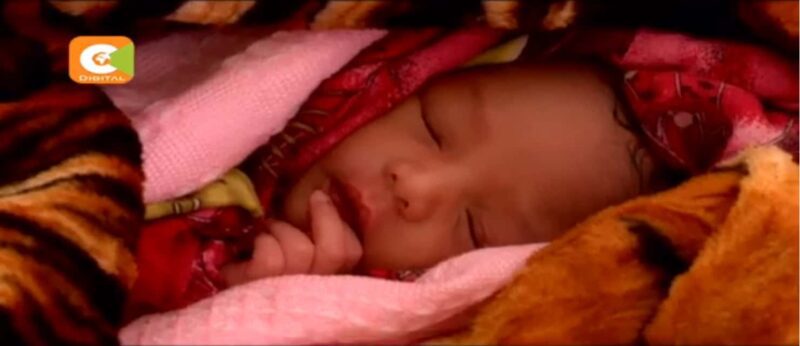In 2017, a nurses’ strike in Kenya caused maternal deaths to double. Internews’ journalism training program – Health Voices Amplified (HVA) – demonstrated the power of the media in influencing government policy, by supporting local media outlets to run stories on pregnancy and childbirth data trends.
Local Nairobi TV station Citizen TV ran a story focused on Marsabit County, where pregnant mothers walked more than 100km to Ethiopia to give birth. The county had no nurses to staff the small local care facility and faced a high maternal mortality rate. The story also revealed that children were not getting immunized. This spurred an urgent call to action. The Ministry of Health launched the “Catch Up” campaign, to reach mothers and children in Kenya’s most vulnerable counties. The campaign targeted more than 300,000 women and children with critical health services. The nurses’ strike was called off two weeks later.
Watch Citizen TV’s story:

HVA, supported by DFID, worked in collaboration with the Maternal and Neonatal Initiative and local partners which provide maternal, child and family health services in 35 of the 47 counties in Kenya. Participating journalists are trained on solutions-based health reporting – the topics “every mother should know” – about prenatal and antenatal care, and child immunization.
HVA also built the capacity of health implementers and government officials at the national and county level to improve media relations. Obstetricians, pediatricians, health officials, trained midwives, community health extension workers are all partners in the training, sharing their knowledge and highlighting solutions. In turn, the specialists learn about the demands and needs of credible journalism. Through discussion forums, media cafés and ongoing mentoring, a trusted relationship is maintained to ensure an ongoing flow of stories that change and shape norms over time and engage citizens in discussion, piquing their interest and creating buy-in for healthy practices.
“I wanted to be a doctor, but I couldn’t. As a health journalist, I’ll operate with my microphone.”
In South Sudan, HVA worked with local journalists in a media fellowship program sponsored by the Dutch Royal Tropical Institute (KIT). Many of the journalists felt a calling to make a difference in a country with the worst health indicators in the world for pregnant mothers and newborn babies.
Their stories, broadcast across the country, created awareness of sexual and reproductive health services. A radio producer who regularly hosts radio programs on health says questions from listeners indicate a willingness to embrace safer practices. “My words have the power to make families stronger,” said journalist Chan Amol.
